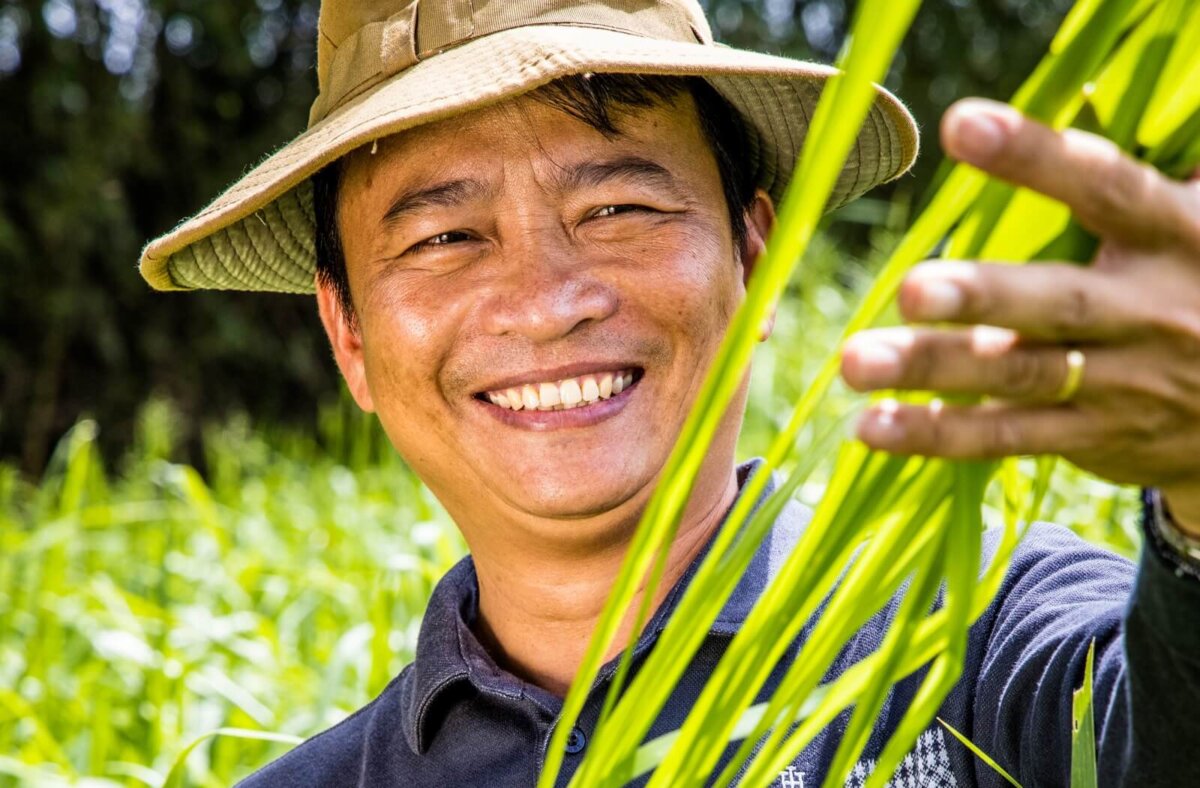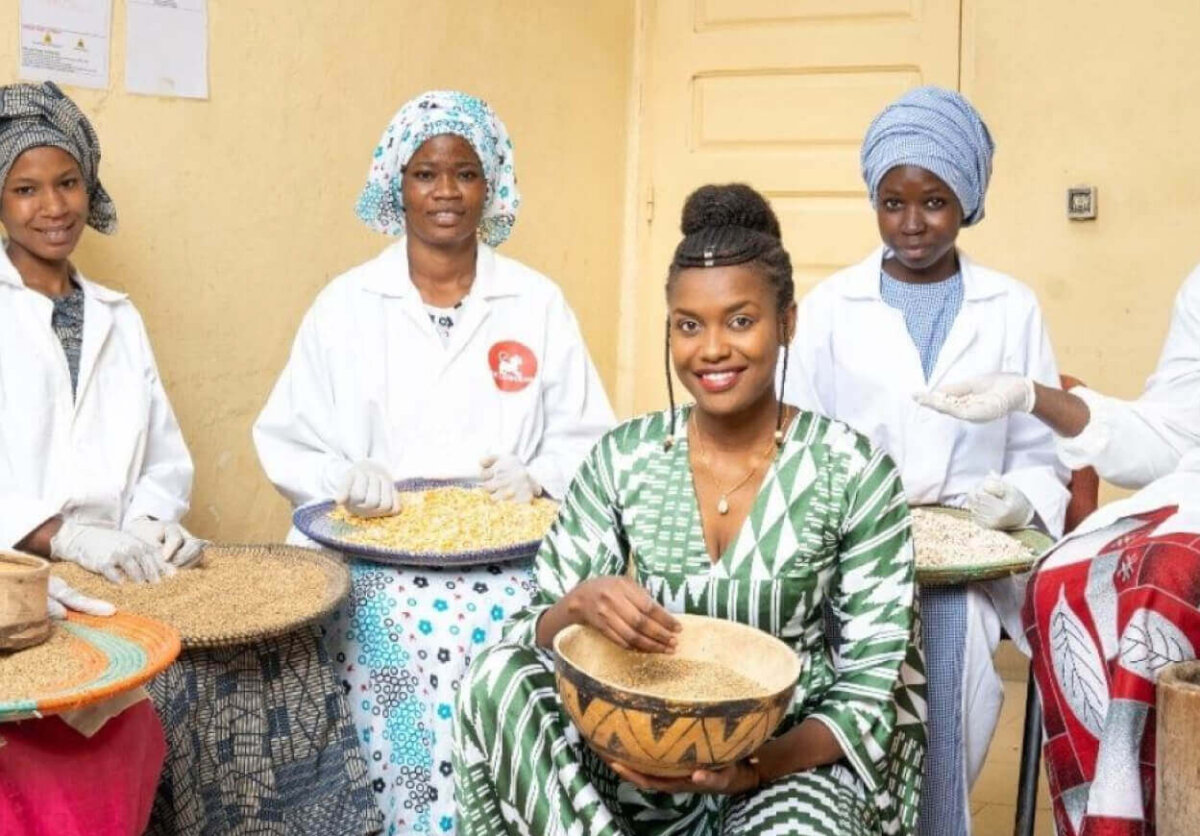The Netherlands is a small country and in addition to being densely populated with people – 18 million – it is home to many farm animals and domestic animals. There are some 4 million ruminants (cattle, sheep, goats) as well as 11 million pigs and 100 million head of poultry. Each type of livestock, as well as domestic animals such as horses, dogs, and cats, requires a specific type of feed.
Feeding so many animals in a country with such limited space calls for efficiency and careful organisation. In the Netherlands almost all the fodder, mainly ryegrass and maize, is produced on the farm. Advanced technology and liberal applications of fertilizer make for high yields per hectare. The sowing, harvesting, and storage of these products in the form of silage and hay are generally done by contract firms, independent businesses or by integration.
Livestock are also given mixtures of concentrates, which are by-products of cereals, oils and fats manufactured for human consumption. About two-thirds of the ingredients in these concentrates are imported from all over the world. They go to medium- and large-sized Dutch feed mills, where they are made into nutritional concentrates for various types of livestock. Feed mills strive to produce mixtures that are economical and pose no risk to human health. Feed safety is a crucial element to be able to deliver to farms. To this end, the sector has created advanced laboratory facilities that analyse nutritional value and the presence of undesirable substances. Machinery and equipment used in the feed mills are produced in part in The Netherlands. Generally the mills are privately owned or operate as cooperatives.
Areas of expertise
Fodder farming, productions and conservation
When to sow, what type of pest and weed control to use, when to harvest: all are key decisions made by farm management. After conserving the crop in the form of hay or silage, its value as feed is determined in a specialised laboratory. PUM works with agronomists, farmers and nutritionists who have expertise to share in all aspects of the production and preservation of fodder
Animal feed formulation
For each species and class of livestock, the optimum feed must be formulated, taking into account cost of production and desired energy, protein, fat, mineral and vitamin content. PUM nutritionists give expert advice on all aspects of feed formulation.
Animal feed manufacturing
Manufacturing includes processes such as grinding, mixing, pelleting and packaging. PUM experts offer guidance with every step of the process.
Animal feed machinery and processes
PUM works with engineers who design production chains as well as technicians who demonstrate proper use of equipment.
Feed mill management
PUM has added feed mill managers to its roster of experts. These managers advise on buying ingredients and machinery, storage, the production process, and the transport and marketing of livestock feeds.
Feed safety management
Feed safety management is a crucial aspect of the feed industry, ensuring the production and consumption of safe and wholesome feed for livestock and pets. It involves implementing comprehensive strategies to identify, assess, and control potential hazards in feed, thereby minimizing the risk of contamination and protecting animal health. By implementing essential components of feed safety management (like Prerequisite Program, HACCP, traceability, monitoring, etc.) feed producers can significantly reduce the risk of contamination, protect animal health, and maintain consumer confidence in the feed industry. PUM experts can train and help you with a proper feed safety management system.
Laboratory and quality assurance
Determining the feed value of the ingredients and the end product are essential steps in the production process. Early detection of toxic or undesirable substances in feed is of utmost importance. PUM experts are trained to implement a quality- assurance system. They also have the training to design a laboratory and give pointers on its operation.
Client examples
Diversification and feedstuffs
A traditional feed plant manufactured concentrates for cattle and poultry. But in response to economic development, more people in cities began to acquire dogs and cats. When the plant realised that these new pet owners would be receptive to high-quality pet food, it turned to PUM for help in developing production lines for specialised dog and cat diets. PUM sent an expert with this particular background, and he collaborated with the company to install the equipment and furnished marketing advice. The company is now tapping into this new market, and the first turnover figures are promising.
Improving fodder production
An NGO observed that dairy production was seriously compromised by a shortage of quality fodder during the dry season. Together with PUM, a three-year programme was developed to tackle the problem. It involved multiple yearly projects and three PUM experts. The first, an agronomist, would oversee the production of maize (for making silage), grass (for hay), and alfalfa and lupines (for high- protein fodder). He is currently giving recommendations and practical demonstrations in soil preparation, sowing, fertilisation, pest control and the best point at which to harvest. The second expert is also in charge of harvesting the crops and conserving them in the form of silage or hay, with a particular focus on the selection and utilisation of equipment for the purpose. The third, a former farmer, promotes integrated dairy-farm management and proper use of fodder. He organises study groups in which participants learn by visiting each other’s farms. The PUM experts have enlisted the help of local counterparts, and thanks to the efforts of the team, milk production in the region is on the rise.
Upgrading a cooperative feed mill
The services of a PUM expert were requested by a cooperative of dairy farmers who wanted to upgrade their feed mill. The process would affect management, operational and technical aspects, and the formulation of concentrates. The most pressing issues were tackled during the expert’s first visit, but a year later the production line encountered difficulties, necessitating a second visit. After assessing the situation, the expert submitted an improved design, together with a blueprint for modifications. Under his supervision, a great deal of work was done in record time, including the installation of new equipment and a new control panel. Thanks to these modifications, the mill now produces more concentrates more efficiently. It has seen a drop in energy consumption and maintenance costs, and requires less labour.
Professional people for positive impact
Looking to grow your business or organisation sustainably and build a brighter future for your community? Contact one of our representatives in your country for criteria, more information and guidance on the application process.




